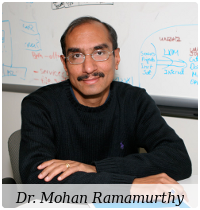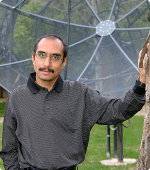
As many of you already know, Unidata traces its roots to a modest project that was designed to provide real-time weather data to, by and large, synoptic meteorologists in U. S. universities. That was 25 years ago. Our mission and vision have evolved and our community has grown since then, but we remain true to our meteorology and university roots, while carefully leveraging our expertise and experience for a growing community of educators and researchers in the geosciences all over the world.
Five years ago, I welcomed you to Unidata's new website. At that time, I described the five-year plan that we had submitted to the National Science Foundation to fund Unidata's activities from 2003 to 2008. We have now completed that period of performance with an impressive record of achievements. Among others, we developed new tools for data access and visualization, broadened our community both disciplinarily and geographically, made equipment awards both to increase and broaden participation in Unidata, and offered an array of new services for community benefit.
Two years ago, we submitted a new five-year plan entitled "A Transformative Community Facility for the Atmospheric and Related Sciences," It offers a bold vision and a realistic plan to extend the successes of the Unidata facility and in so doing to empower the community to continue to make transformative advances in geosciences education and research. That plan provides six overarching themes that are shaped by pertinent scientific and education drivers, addressing community needs and in alignment with the National Science Foundation priorities:
I was invited to write a guest column about Unidata's vision for the February 2009 issue of Staff Notes, a newsletter for UCAR staff and retirees. The article "From Users to Contributors: Making Data Services Dynamic" offers a peek into our vision for providing comprehensive, well-integrated, and end-to-end data services for the geosciences.
We are proud of the work we do here in the Unidata Program Center, and we acknowledge with gratitude our debt to the entire Unidata community whose members are full partners with us as we strive to achieve the goals set out in the new plan.
 Mohan is director of Unidata, a program that works with
educators and researchers to provide data and research tools
for understanding and exploring the earth sciences. The
program also takes a lead in strengthening collaboration and
cooperation in the earth system science community.
Mohan is director of Unidata, a program that works with
educators and researchers to provide data and research tools
for understanding and exploring the earth sciences. The
program also takes a lead in strengthening collaboration and
cooperation in the earth system science community.
Dr. Ramamurthy joined UCAR in 2003 after spending nearly 17 years on the faculty in the Department of Atmospheric Sciences at the University of Illinois at Urbana-Champaign. Dr. Ramamurthy has a bachelor's and master's degrees in Physics from the University of Poona in India. He earned his Ph. D. in Meteorology from the University of Oklahoma, where his doctoral research dealt with the analysis of data and modeling of disturbances associated with monsoons. Dr. Ramamurthy is a Fellow of the American Meteorological Society.
A catalog of Dr. Ramamurthy's presentations by audience.